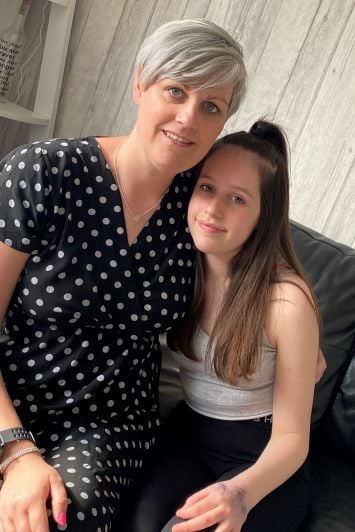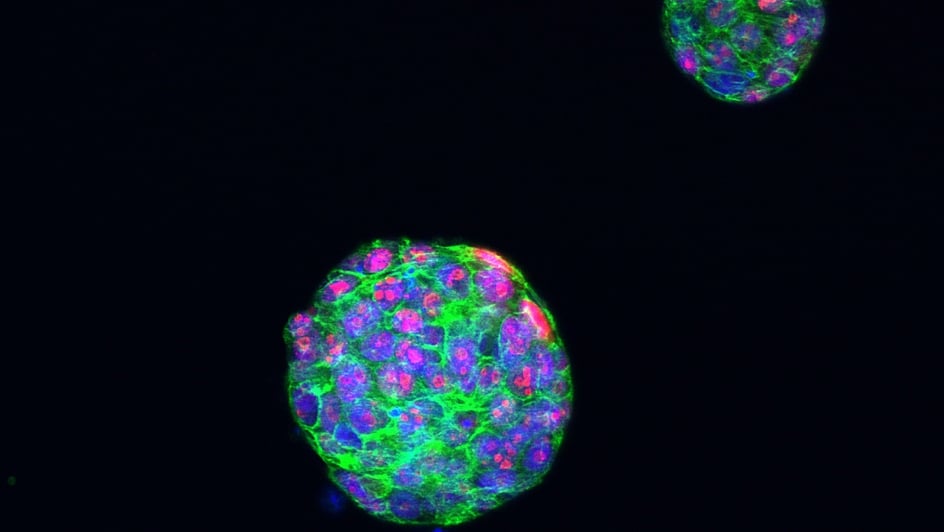Our research into breast cancer
Our scientists have been involved in some of the most famous discoveries in breast cancer research, leading studies that have transformed treatment for breast cancer on a global scale.
Image: Time-lapse image of an aggressive breast cancer cell, Image credit: Patricia Pascual Vargas
Our progress against breast cancer
Identifying the BRCA2 gene
We made one of the most significant discoveries in cancer genetics to date – identifying the BRCA2 gene. The discovery of this gene has helped thousands of people with a family history of breast cancer get tested and assess their risk of developing the disease.
Developing new drugs
Alongside our partner hospital, The Royal Marsden, we played a leading role in the development of a class of drugs called aromatase inhibitors, now commonly used to treat breast cancer in post-menopausal women.
Our research underpinned the development of drugs called PARP inhibitors, one of which is olaparib, now used in the treatment of breast and ovarian cancer in patients with mutations in their BRCA genes.

"When I was diagnosed with breast cancer, my world fell apart – so it was a no-brainer for me to have preventative surgery when I discovered I had the BRCA2 gene mutation.It’s really reassuring to know about the progress being made in cancer research, particularly the success olaparib has been having, and I’m so thankful this treatment might be available by the time my children are grown up".
– Caroline Wheeldon
Clinical trials
We led trials establishing the effectiveness of the chemotherapy drug carboplatin – discovered at the ICR – in triple-negative breast cancer, and of the targeted drug palbociclib in advanced, metastatic breast cancer.
Recently, results from the OlympiA trial showed that using the targeted drug olaparib to treat some women with early stage breast cancer and mutations in their BRCA genes reduced their risk of breast cancer coming back by 42 per cent.
Better tests
We are developing new tests to detect breast cancer and predict which patients are likely to see their disease come back, and spread.
For example, we pioneered the development of ‘liquid biopsies’ – blood tests that can detect the spread of cancer more quickly.
Recent results from the PlasmaMATCH trial have shown that liquid biopsies can match women with breast cancer to targeted drugs based on their specific mutations.
Radiotherapy
We have transformed radiotherapy treatment for breast cancer.
Together with The Royal Marsden, we led the START trial, which showed that women could safely undergo fewer, larger doses of chemotherapy with reduced side effects, reducing standard treatment from 25 doses over five weeks, to 15 doses over three weeks.
More recently, the FAST-Forward trial showed that the course could be further reduced to just one week, with the same benefits, for women with early-stage breast cancer.
Breast cancer clinical trials
In our Clinical Trials and Statistics Unit (ICR-CTSU), we translate cutting-edge science into quality clinical trials that can transform cancer care.
Here are the latest trials that include patients with breast cancer. If you or someone you know is a breast cancer patient, then you may be able to support our research by taking part in a trial that’s “Open to recruitment”. Or see all clinical trials.
Your support helps
Please donate today to help more people survive breast cancer. As a UK charity, our life-saving research relies on the generosity of individuals and organisations. Our supporters help us make a difference to the lives of cancer patients and their families everywhere.
Breast cancer discoveries

ICR welcomes NICE recommendation of capivasertib for advanced breast cancer

